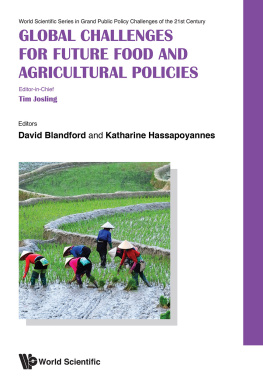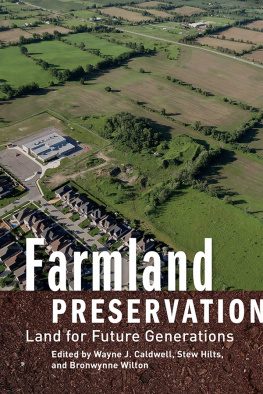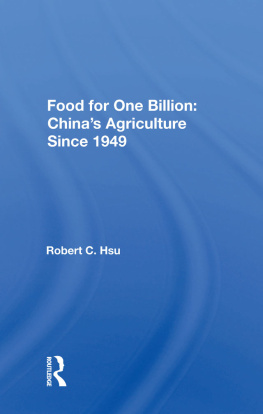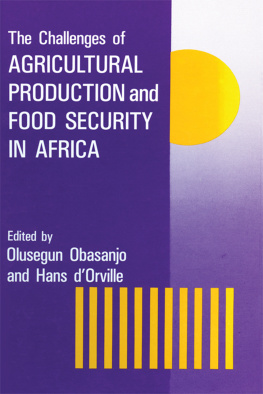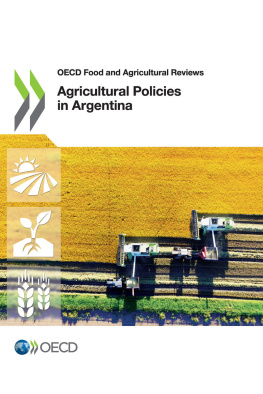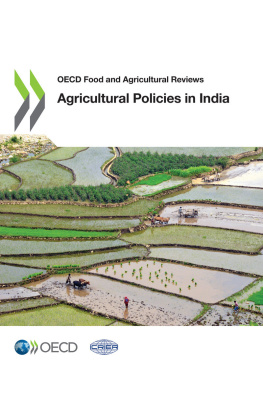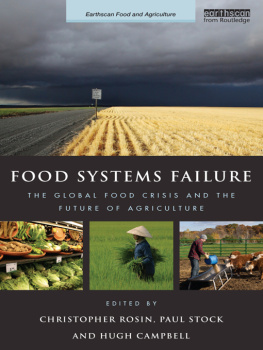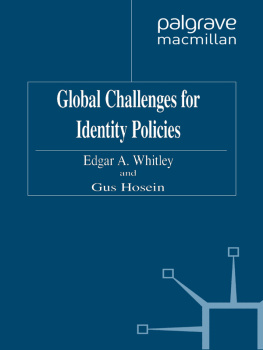GLOBAL CHALLENGES FOR FUTURE FOOD AND AGRICULTURAL POLICIES
World Scientific Series in Grand Public Policy Challenges of the 21st Century
ISSN: 2630-4856
Editor-in-Chief
Anil B Deolalikar (University of California, Riverside, USA)
This book series will address topics related to some of the biggest challenges facing societies around the world in the 21st century threats such as climate change, food insecurity and malnutrition, energy and water insecurity, pandemics, conflict and violence, growing inequality and poverty, low fertility and depopulation in affluent countries, anemic economic growth and stubbornly high unemployment in much of the developed world, and rising rates of obesity and chronic diseases in developing countries. If unaddressed, these challenges have a real chance of derailing the substantial gains in living standards and quality of life achieved around the world in the last three decades.
The World Scientific Series in Grand Public Policy Challenges of the 21st Century, under the leadership of Professor Anil Deolalikar, a renowned development economist, seeks to fill this gap. It will strive to publish high-quality scientific works, including monographs, edited volumes, references, and handbooks, that address topics related to the grand challenges confronting societies around the world today.
Published
Vol. 3Hunger and Malnutrition as Major Challenges of the 21st Century edited by Raghbendra Jha (Australian National University, Australia)
Vol. 2Agriculture & Food Systems to 2050: Global Trends, Challenges and Opportunities
edited by Rachid Serraj (Food and Agriculture Organization of the United Nations, Italy) and Prabhu Pingali (Cornell University, USA)
Vol. 1Global Challenges for Future Food and Agricultural Policies
editor-in-chief Tim Josling (Stanford University, USA) edited by David Blandford (The Pennsylvania State University, USA) and Katharine Hassapoyannes
Published by
World Scientific Publishing Co. Pte. Ltd.
5 Toh Tuck Link, Singapore 596224
USA office: 27 Warren Street, Suite 401-402, Hackensack, NJ 07601
UK office: 57 Shelton Street, Covent Garden, London WC2H 9HE
Library of Congress Cataloging-in-Publication Data
Names: Josling, Tim, 1940 editor. | Blandford, David, editor. | Hassapoyannes, Katharine, editor.
Title: Global challenges for future food and agricultural policies / editor-in-chief: Tim Josling (Stanford University, USA) ; edited by: David Blandford (The Pennsylvania State University, USA) and Katharine Hassapoyannes.
Other titles: World Scientific series in grand public policy challenges of the 21st century ; v. 1.
Description: New Jersey : World Scientific, 2018. | Series: World Scientific series in grand public policy challenges of the 21st century ; volume 1
Identifiers: LCCN 2018033052 | ISBN 9789813235397 (hc : alk. paper)
Subjects: LCSH: Nutrition policy. | Agriculture and state.
Classification: LCC TX359 .G55 2018 | DDC 363.8/561--dc23
LC record available at https://lccn.loc.gov/2018033052
British Library Cataloguing-in-Publication Data
A catalogue record for this book is available from the British Library.
Copyright 2019 by World Scientific Publishing Co. Pte. Ltd.
All rights reserved. This book, or parts thereof, may not be reproduced in any form or by any means, electronic or mechanical, including photocopying, recording or any information storage and retrieval system now known or to be invented, without written permission from the publisher.
For photocopying of material in this volume, please pay a copying fee through the Copyright Clearance Center, Inc., 222 Rosewood Drive, Danvers, MA 01923, USA. In this case permission to photocopy is not required from the publisher.
For any available supplementary material, please visit
https://www.worldscientific.com/worldscibooks/10.1142/10860#t=suppl
Desk Editors: Dr. Sree Meenakshi Sajani/Jiang Yulin
Typeset by Stallion Press
Email: enquiries@stallionpress.com
Printed in Singapore
In Memoriam
Timothy E. Josling
19402018
Preface
There are few more sensitive areas of public policy than the support and regulation of a nations farm and food sectors. The agricultural sector plays an important role in the national economy in many countries, and even when overshadowed by other sectors farming is commonly the mainstay of the rural economy. The sector provides food for consumers, a livelihood for farm families, a main source of employment of labor in rural areas and the de facto management of the countryside. Thus, the public support for the sector has many facets: agricultural policies have focused on the management of the markets for farm produce as well as the provision of public goods in rural areas, and the regulation of the food sector has commonly focused on promoting food safety and ensuring adequate information for consumers to make their decisions. In nations where poverty restricts access to food supplies, food policy takes on an additional role as a vital element of social and health policy. Moreover, most countries engage in international trade in farm and food products as exporters or importers (and commonly as both.) For exporting countries sales of food products and raw materials can often be a major source of foreign exchange. Importers rely on production in other countries to complement their own agricultural capacity. For many low-income countries trade is an essential aspect of food security. Thus, trade concerns play a major role in shaping the international face of domestic farm and food policy.
It would be possible to treat these farm and food policies as individual, idiosyncratic and eclectic entities driven solely by domestic social, political and economic concerns. But this would miss an important and absorbing aspect of this policy space. Countries both rich and poor, for instance, face essentially the same set of problems when confronted with the challenges of fluctuations in weather and erratic world market conditions. How they react to these challenges is instructive. Fundamental structural changes relating to agriculture as economies develop is a further common feature. And the adoption of new technology poses additional challenges of adjustment for the farm sector in all countries. Farming sheds labor as productivity increases and the availability of off-farm jobs often determines the pace of this adjustment. Rural development policy in most cases aims to smooth the transition from a rural economy dominated by small farms and weak infrastructure to a competitive economic sector, complete with jobs, roads and markets to complement the expanding urban areas. Food policies also address similar problems in different countries, whether the task is to protect the food supply from contamination and arrest the spread of food-borne disease or to provide consumers with information on diets and prevent misleading claims by food firms. Also, the external implications of such national policies have provided a stimulus to the development of trade rules for farm and food products and a legal system to reduce the tensions that surface when such rules are stretched to their limits.



